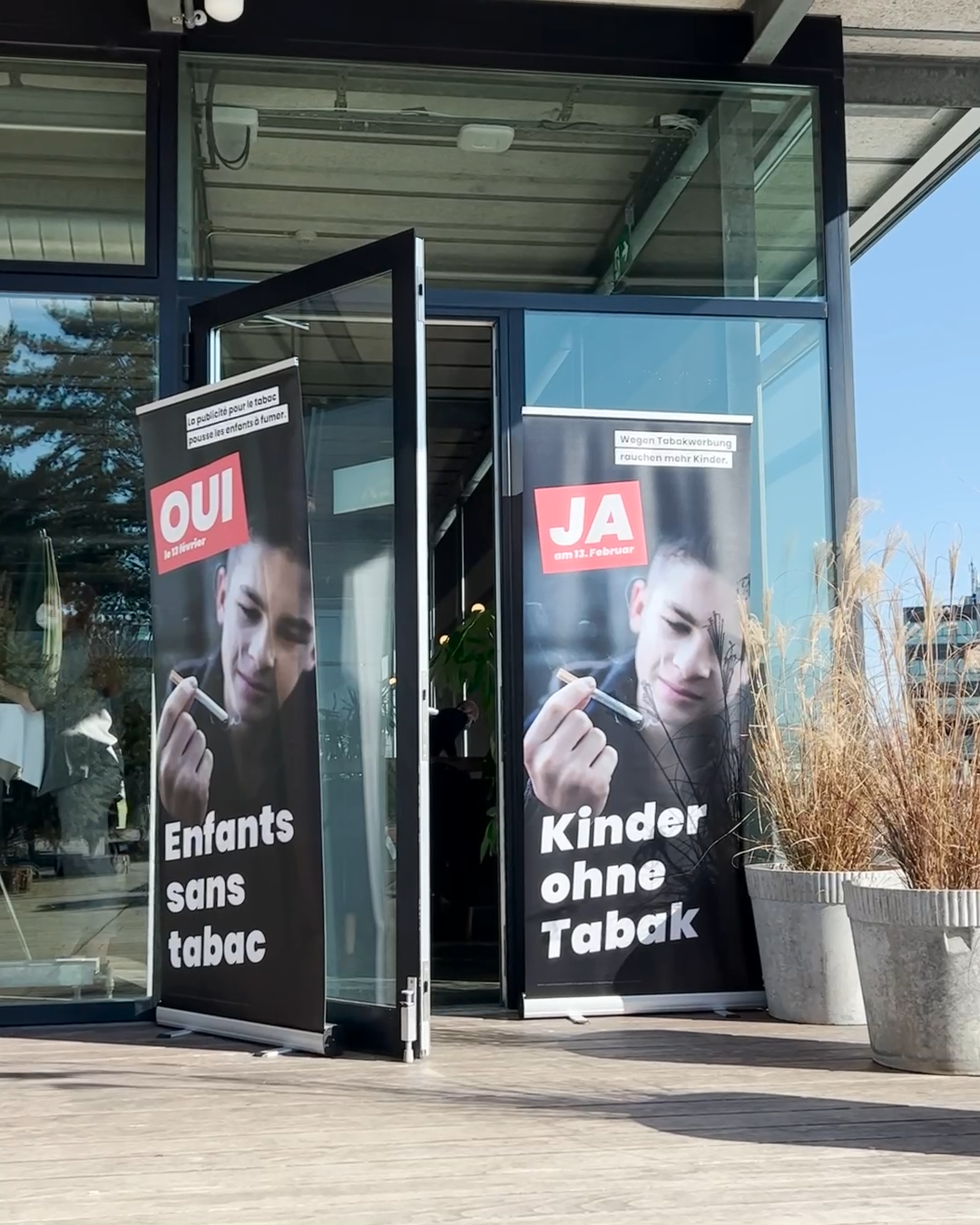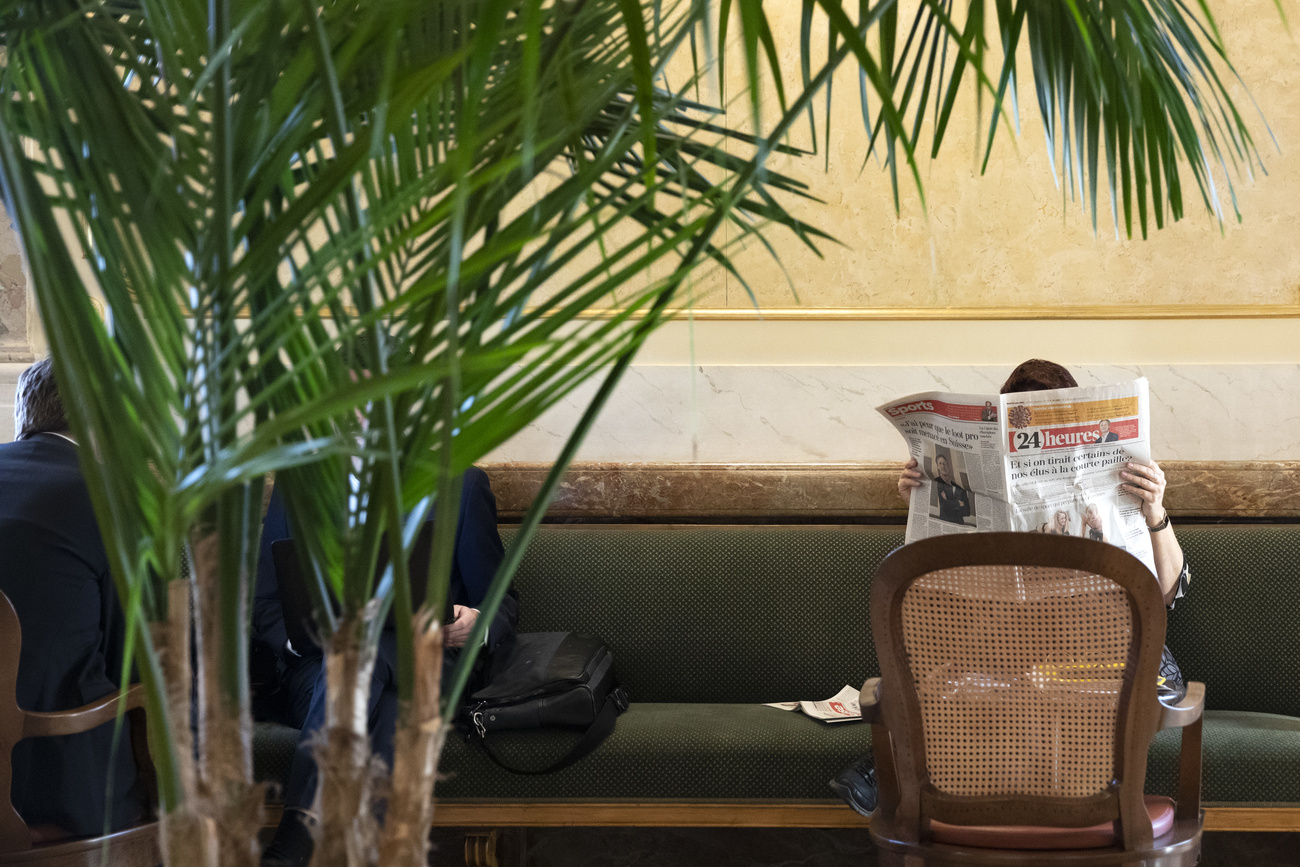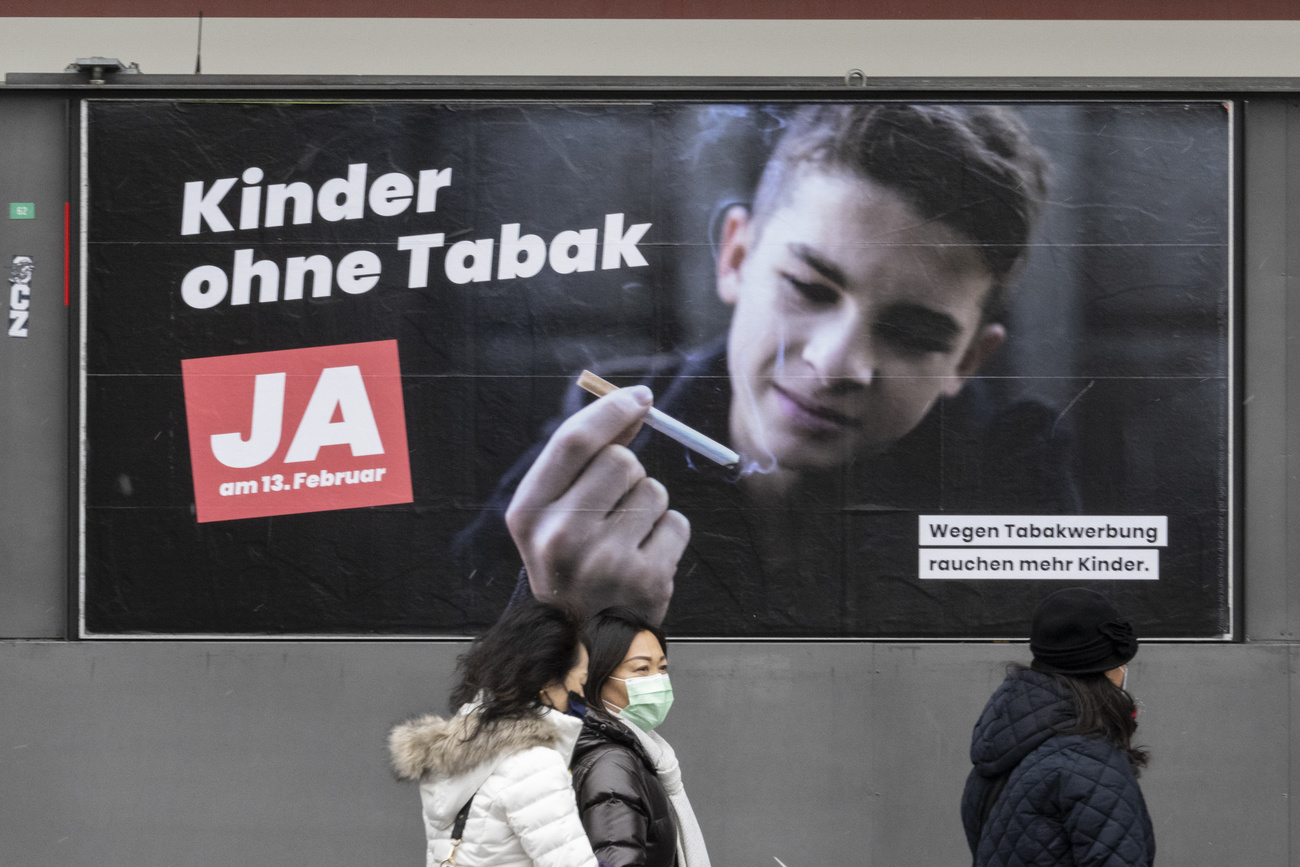Swiss vote exposes growing chasm between government and citizens

Swiss citizens did not support the politicians’ viewpoint on three out of four issues put to a nationwide vote on Sunday. Covid-19 could be responsible.
The majority of voters rejected the government’s advice on tobacco advertising targeting minors (approved by 56.6% of voters), funding of private media (rejected by 54.6%) and reform of stamp duty on corporate equity (rejected by 62.7%). The only vote issue that citizens saw eye-to-eye with their elected representatives was the one calling for a ban on animal testing (rejected by 79.1%).

More
Results of the vote of February 13, 2022
“These results show that there is a growing gap between the concerns of the population and those of the majority of leaders in parliament and government,” wrote the French language Le Temps paper on Monday.
The German language paper Neue Zürcher Zeitung (NZZ) called the triple loss “a rare disgrace”.
One of the factors blamed for the divergence from the official position was that there were too many issues on the table. With a year and a half to go before the federal elections, politicians and political parties are keen to make their mark.
“Once again, the Swiss have shown that they hate election packages. The Federal Council and parliamentarians should finally pay heed,” wrote the Le Temps.
Pandemic mood
According to Martina Mousson, a political analyst with polling institute GfS Bern, there is an atmosphere of distrust that is occasionally expressed via the ballot box.
“The pandemic has changed the political debate in Switzerland. Before the crisis, one in four referendums was accepted and now we are at almost one in two,” she told SWI swissinfo.ch in an interview.
Le Temps is also convinced that the pandemic is a major contributor to this divergence of views between citizens and the state.
“Health-related issues are of particular concern to the Swiss people, whether it be tobacco regulations or the working conditions of healthcare workers. Poorly drafted counter-proposals are no longer enough to defeat initiatives with safeguarding qualities,” wrote the paper.
The current situation has also given rise to many economic concerns, which is probably why Swiss citizens rejected financial sops like the abolition of stamp duty for companies and money for private media.
“For the majority of the population, this is not the time to offer new tax breaks to big business. The end of uncertainty about wages, pensions and rents takes precedence over reforms that do not benefit the majority,” added Le Temps.
The Covid-19 pandemic and the government’s handling of it could have also led to a more critical voting base. Lukas Golder of the polling institute GfS Bern, suspects that since the pandemic, more and more citizens who are critical of the authorities have taken part in votes. The crisis has led to a politicisation that has not happened since the introduction of women’s suffrage, he added in an interview in the NZZ.
However, statistics do not indicate a mass movement of disgruntled citizens mobilising against the government. In 2021, the average voter turnout was 57.2% but this vote has returned to normal levels at around 44%.
Writing on the wall?
Is the government and political class going to continue to take a beating when it comes to direct democracy? According to the NZZ, votes that are not in the interest of the authorities are in vogue. Since 2019, the government has lost several votes or only won by a hair’s breadth. Recent defeats include the CO2 law, tax deductions for parents and the introduction of electronic ID. It was a close call with other votes like the one on corporate responsibility and the procurement of new fighter jets.
The vote on Sunday has shown that the political class cannot afford to lose touch with citizens in a direct democracy like Switzerland.
“They should also listen more carefully to prevent the gap between the population and their elected representatives from widening,” wrote NZZ.
However, according to political analyst Mousson, the result of this vote is not a fundamental criticism of the government or of Swiss politics in general. She told SWI swissinfo.ch that confidence in the government is important and intact.
“The Federal Council is finding it harder to make itself heard, perhaps because communication is more difficult in times of a pandemic. People talk to each other less, and the ability to understand each other’s positions is weakened.”

More
Swiss voters approved ban on tobacco advertising

In compliance with the JTI standards
More: SWI swissinfo.ch certified by the Journalism Trust Initiative












You can find an overview of ongoing debates with our journalists here . Please join us!
If you want to start a conversation about a topic raised in this article or want to report factual errors, email us at english@swissinfo.ch.